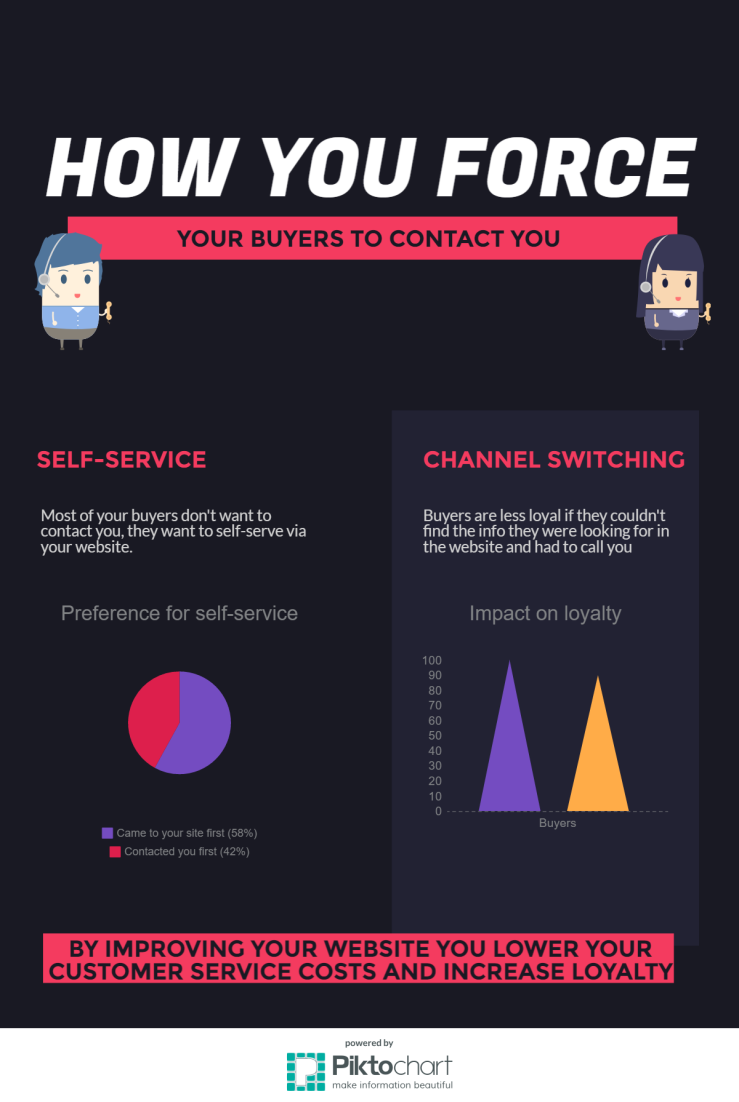At WebInterpret we work with sellers from various industries and representing companies of very different sizes – from moms getting rid off second-hand baby stuff to sellers making millions euros of sales per month. One complaint remains constant, however, across our seller base. You guessed it, it’s complaining about buyers.
No matter the size of your business, you quickly become overwhelmed by handling your customer service, especially so during the pre-Christmas rush. Unreliable suppliers, the effort to maintain your website, changing marketplace conditions – all these don’t make your life any easier but seem to be less of a pain than handling customer queries. Well, here is the good news – according to the fascinating book, The Effortless Experience: Conquering the New Battleground for Customer Loyalty by the team of scientists from CEB, your customers don’t want to contact you – you make them do so.

Your average customer doesn’t want to contact you any more than you want her to contact you: 58% of your customers visit your website before they reach out! Only 42% of customers who end up calling you with their question / complaint didn’t check your website to find the answers beforehand.
Another interesting finding : customers don’t like to use multiple contact channels. If they didn’t find what they were looking for while browsing your website / marketplace listing and they have to contact you to get information, they are on average 10% less loyal – 10% less likely to do business with you again.
In a nutshell, what this means to you is that by not giving your buyers the information they search for online you :
- increase your customer service cost
- decrease the chance for repeated business from these customers
Why do customers end up contacting you if all they wanted to do was find help online? The most frequent reasons for picking up the phone seem to be:
- the customer couldn’t find the information she was looking for
- the customer did find the information but didn’t understand it
- the customer was browsing through your site / reading through your listing to find out how to contact you
What can you do to prevent it from happening?
- make sure the most frequent questions are answered on your website / marketplace listing and easily accessible. Guide your customers to the answers they are looking for via drop-down menus.
- use simple language – when confronted with a ten-page long return policy written in a legal language, buyers will most likely end up calling you to find out the return address. They buy online to save time so you can assume they don’t have the time necessary to read through all this text
- use the words your customers are likely to use – sellers tend to use abbreviations which are familiar to e-retailers but are you certain your buyers know what they mean? Scan your website / listings for jargon, I’m certain you will find many words that an average buyer has no chance of understanding
- don’t offer multiple contact channels right on your website – buyers are easily intimidated by too many contact options
- don’t hide your phone number – instead, deter buyers from using the phone by placing the answers to most frequently asked questions right next to it
According to the authors of the research, applying these improvements should allow you to keep online two out of ten buyers who would otherwise call you. I recommend you spend the time this will spare you reading “The Effortless Experience” for more fascinating stats and advice.
